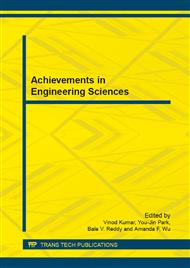p.1835
p.1839
p.1844
p.1848
p.1853
p.1857
p.1862
p.1871
p.1876
Research of a MapReduce Model to Process the Traffic Big Data
Abstract:
Normally, the job of the Traffic Data Processing Center (TDPC) is to monitor and retain data. There is a tendency to put more capability into the TDPC, such as ad-hoc query for speeding car identification and feedback abnormal traffic information. Thus we definitely need to think about what can be kept in working storage and how to analysis it. Obviously, the ordinary database cannot handle the massive dataset and complex ad-hoc query. MapReduce is a popular and widely used fine grain parallel runtime, which is developed for high performance processing of large scale dataset. In this paper, we propose MRTP, a MapReduce Traffic Processing system based on Hive/Hadoop frameworks. A distributed file system HDFS is used in MRTP for fast data sharing and query. MRTP supports fast locating speeding car and also optimizes the route to catch fugitive. Our results show that the model achieves a higher efficiency.
Info:
Periodical:
Pages:
1853-1856
Citation:
Online since:
April 2014
Authors:
Keywords:
Price:
Сopyright:
© 2014 Trans Tech Publications Ltd. All Rights Reserved
Share:
Citation:


